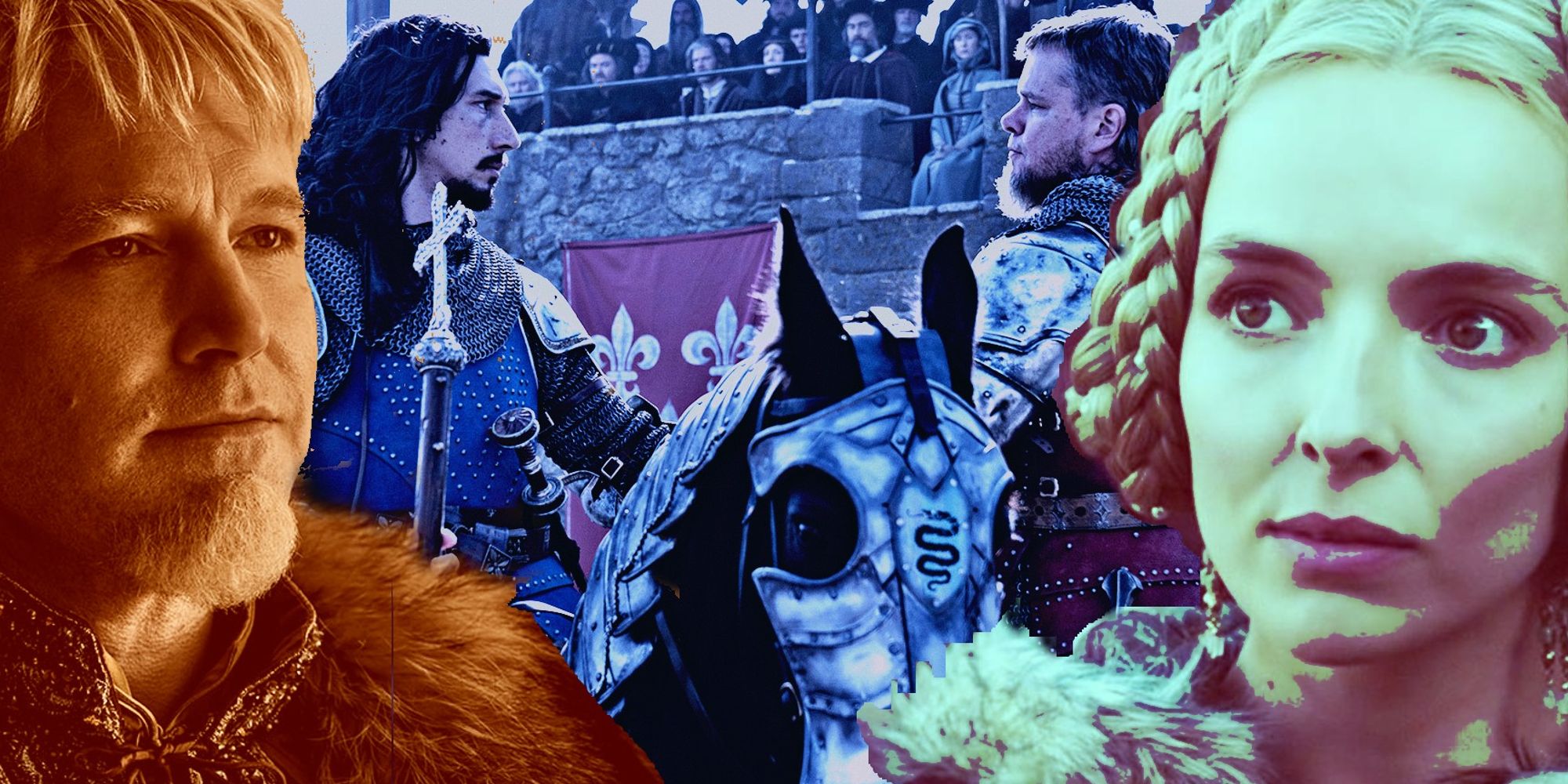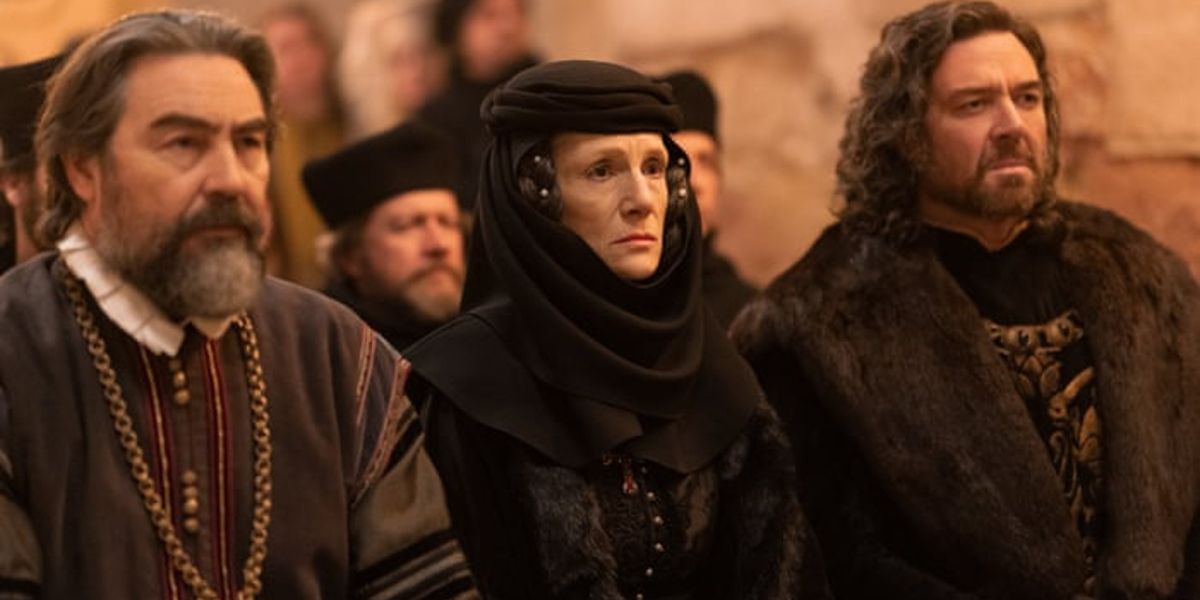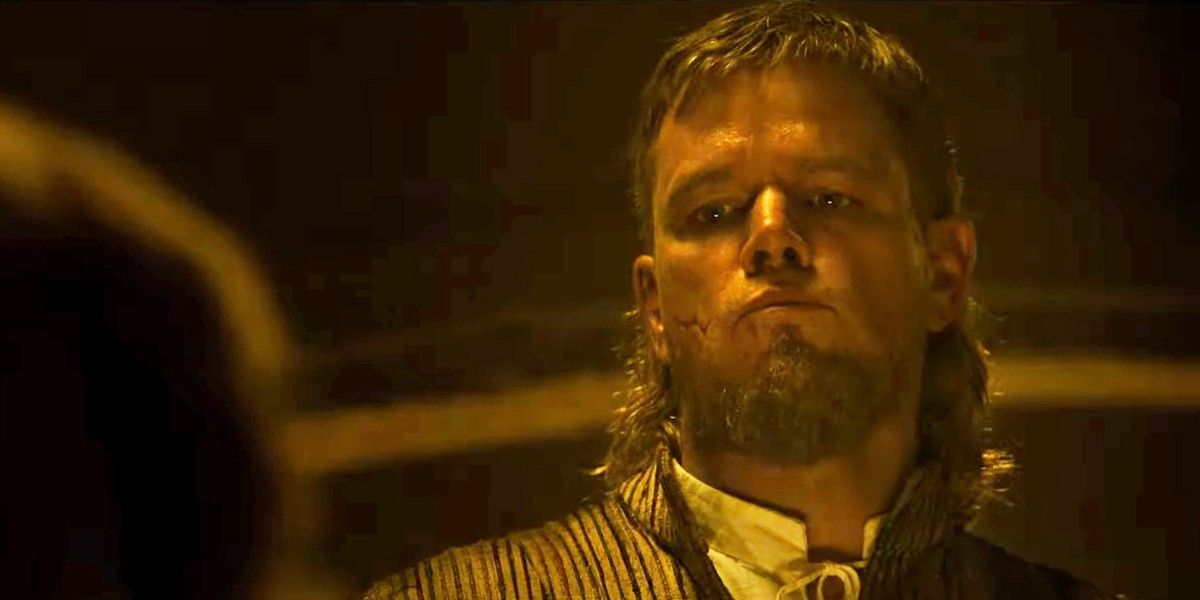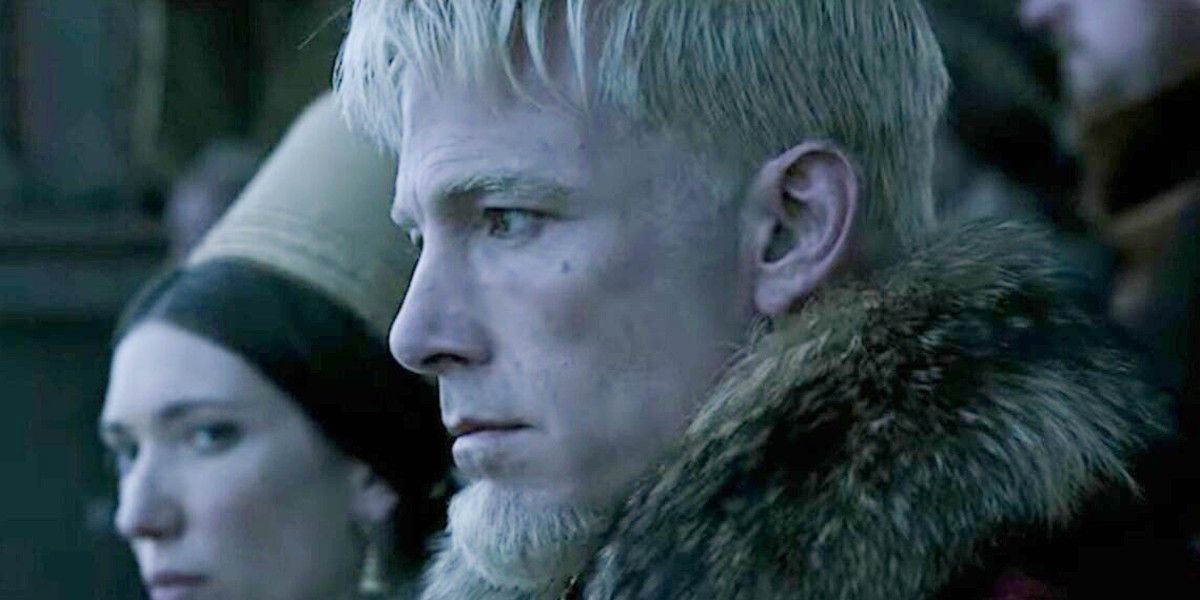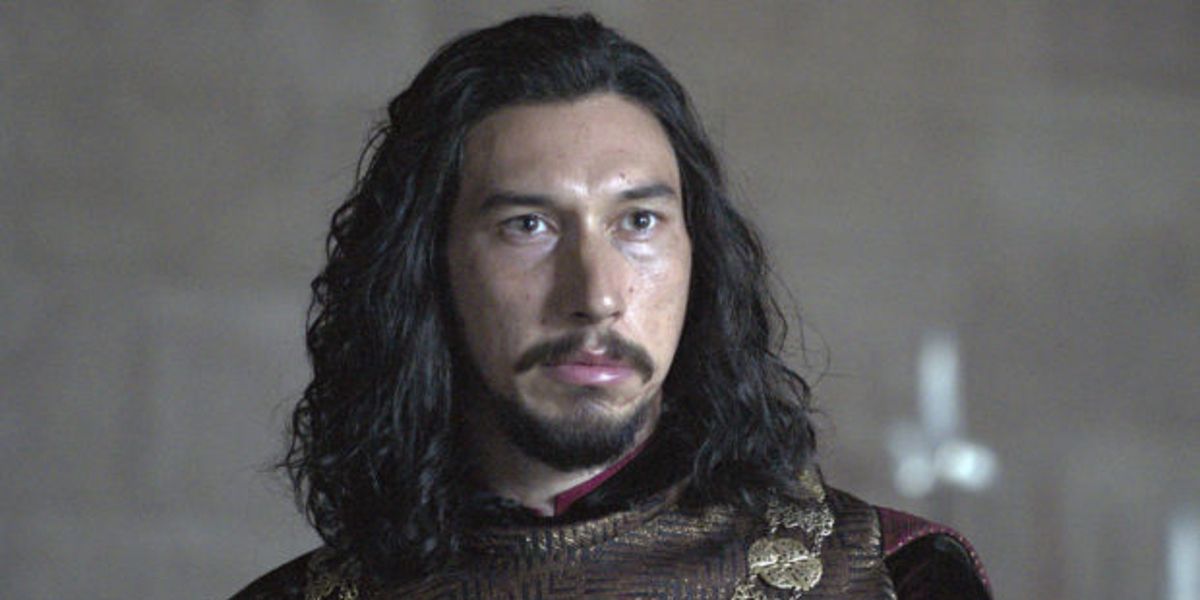For all its epic sprawl, Ridley Scott's The Last Duel is a surprisingly self-contained movie, with just five characters getting the bulk of the screen time and the dialogue. In that way, it feels almost like a stage play, with the historical figures behaving not dissimilar to characters in a Shakespearean tragedy, plotting each other's demise with relish, recklessly assaulting one another's reputations, and tackling romantic obligations with equal parts diffidence and arrogance (depending on the narrative).
Based on a non-fiction work by Eric Jager, the movie explores the real sexual assault of a young noblewoman in 14th century France from three different perspectives and the bloody duel that decides the fate of those involved; Marguerite de Thibouville (the victim, played by Jodie Comer), Jacques le Gris (the perpetrator, played by Adam Driver), and Jean de Carrouges (her avenging husband, played by Matt Damon). The three different perspectives of the same event allow for subtle changes in the perception of both it and the narrators, as well as uniquely different performances from each actor as they (and their actions) are seen in a different way. The best characters in the movie wholly convince the audience of their perspective, reveal nuanced performances, and offer thought-provoking takeaways from the unsettling subject matter.
Nicole De Buchard
That Jean de Carrouges's mother is a frosty woman is an understatement, but the duplicitous matriarch has her reasons for being grave and making domestic life hell for her daughter-in-law, Marguerite. The lady has had her share of pain and disgrace at the hands of entitled, self-aggrandizing men, and internalized misogyny has molded her life for better or for worse.
What could have been a two-dimensional character based on the first two acts of the movie is given the chance at redemption in the third, when Harriet Walter's delivery of a poignant piece of truth transforms a typical female villain like the one seen in The Favourite into a victim, and it becomes difficult not to empathize with a woman who has had to, quite sagaciously, choose survival and practicality over romance and idealism.
Jean De Carrouges
A dedicated soldier on the battlefield, there's no doubt that Jean de Carrouges isn't an asset to any cash-strapped, land-rich lord looking to provide assets to anyone who will run off to war at the drop of a lance. That he fails to show this level of devotion and dedication to his wife is the unforgivable component, especially when his reputation as a pugnacious brute at court ruins her chances of being respected even while he's away for months at a time.
Villains can make morally bankrupt decisions but still appear likable to fans thanks to an undercurrent of charisma, but in de Carrouges there is nothing to recommend him, and he remains adamantly self-involved until the end, especially when he re-traumatizes his wife after her vicious assault. Matt Damon, ordinarily known for portraying heroic characters, uses the infuriating smugness he employed to such great effect playing Judge Brett Kavanaugh on Season 44 of SNL to perfectly capture the self-righteousness of a man completely convinced of his own excellence -- and the anger at not being recognized for it.
Count Pierre
A man of unscrupulous morals in his own right, it's not surprising that Count Pierre d'Alençon finds a blossom buddy (quite literally) in Jacques le Gris and not the stick-in-the-mud Jean de Carrouges (as he memorably says of the latter, "he isn't any fun"). He doesn't simply want a medieval "bro" to drink mead and have orgies with, however -- he quite astutely understands that le Gris has the physical presence to make sure his collections arrive on time, and the education to keep his ledger up to date.
Bizarre hair aside, Ben Affleck is in fine form here, completely altering not only the sound of his voice but its cadence in order to embody the medieval equivalent of the party host that goes out of his way to console the friend that takes advantage of a party guest with the 14th century equivalent of "boys will be boys". While some viewers might see it as a return to the arrogant swagger of the roles he played in his youth, it's almost a meta wink and a nod to his appearance as 17th century British thespian Ned Alleyn in Shakespeare in Love.
Jacques Le Gris
Jacques le Gris is a piece of work. A gifted orator and well-educated for a squire, he quickly realizes that he doesn't want Jean de Carrouge's life of endless war, and finds it much more beneficial to gain the benefit of Count Pierre's favor and languish in court. But he cannot be dismissed as a simple conniving opportunist -- he's also a very large and threatening man, who views bedding women as a game and is convinced that part of that game inevitably involves violence.
Adam Driver (who can also be seen in Ridley Scott's House of Gucci) deftly embodies the perceived sensitive, romantic suitor, who feels they're a better candidate for a lover than a wife's chosen husband. He's the obsessive fellow that thinks he's having a relationship with a woman whose only knowledge of his existence is as a creep, who is made all the more terrifying but his hulking physicality. Some viewers may see in le Gris a repeat of Kylo Ren from Disney's Star Wars sequel trilogy, but Driver appears as at home in this era as he does in space, and perhaps he's better served here prowling every frame like a Byron-esque predator, sweeping obnoxiously large capes, and spouting elegant refrains that conceal his malevolence.
Marguerite De Thibouville
A youthful, dutiful wife destined to bear sons, a coquettish temptress that makes the hearts of men race -- Marguerite means something different to both her husband and her assailant, and somewhere in the middle, she exists as herself. But neither of the men are interested in who that woman is, only who she can be as a component of their fantasies, triumphs, and successes. In 14th century feudal France, women were seen as the property of their husbands, and any harm that befell them was not considered a wound to their person but a slight on their male guardian's reputation.
Jodie Comer's performance is a late-bloomer, as Marguerite is appropriately (given the time period) reduced to being window dressing in the men's storylines, a beautiful ornament to covet and cast aside. But when Marguerite comes into her own in the third act, her conviction blossoms from the sense of self-possession that has allowed her to live with the entitled men around her. When she is exonerated after the duel concludes, there is the implication that the verdict will have ripple effects in the court thanks to a knowing glance exchanged between the wives of the most powerful men in France -- King Charles VI and Count Pierre. Marguerite could have remained silent about what happened to her, but she would not let a man take one more thing away from her.

